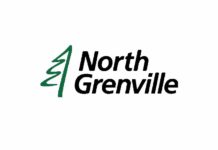Things change rapidly in this world of ours. Climate change, elections surprises, and so many other things, make one wonder where we’ll be in another century or two. “In the year 2525, if man is still alive…” We’ll need some strong roots to keep our balance as the years go by.
In January of next year, we’ll be marking twenty years of the Municipality of North Grenville. In 1998, the Townships of Oxford-on-Rideau and South Gower, amalgamated with the Town of Kemptville to form the new municipality. It was a shotgun marriage, in all truth, imposed by the government of Mike Harris as a cost-saving measure, one which would make local government more efficient and more economical. We all know how that turned out.
The official historic identities of those three municipal communities came to a sudden end in 1998, though residents of the areas still maintain a distinct sense of self, and there has yet to be a unified sense of community. Now we are hearing rumours of a possible further round of amalgamations in the future, and some municipalities are determined to resist. Not North Grenville, from what I can gather, or, at least, not the political element of North Grenville.
Whatever happens, lessons need to be learned from the 1998 experience. A community needs roots, a sense of where it came from, in order to maintain a focus, a way to distinguish itself from other places. We do not want to become simply a dormitory town for Ottawa. An essential part of that identity is a common history, a sense of our shared heritage. And that comes from a knowledge of our history, our roots. The most tangible aspect of heritage is in our buildings, our visible reminders that we came from somewhere in time, that we are inheritors of what earlier generations built, literally and figuratively.
North Grenville, sadly, does not have a good record when it comes to preserving that built heritage. Too many buildings have been lost to natural causes, such as fire and decay. Others were lost through carelessness and a lack of awareness of their importance. Some were lost simply through greed and a desire to make a bit of money.
Now, however, the Municipality of North Grenville is taking steps to come into line with provincial regulations, and, in fact, to go a bit further. Council have been presented with a recommendation by the Heritage Advisory Committee [HAC] to compile a register of heritage buildings in the municipality, and to adopt a manual for evaluating possible heritage properties. The Guide for the Evaluation of Properties of Heritage Interest or Value will allow staff and members of the HAC to adequately evaluate properties in order to register them and, possibly, designate them as heritage properties.
This would mean, for example, that applications to demolish, or seriously change the character of these properties could be assessed and decisions made based on a full awareness of the heritage value of those properties. The initiative has taken some time to make it to Council. It originated in the hiring of a heritage consultant back in December, 2015 and included an investigation into heritage buildings owned by the municipality itself.
This issue is not as simple as it seems. Heritage not only provides that sense of community identity and roots, it can also be a matter of budgets and economics. Maintaining historic buildings can be costly, especially in times of budgetary constraints. Preserving heritage can seem a secondary issue in the face of demands on taxes. But heritage can also be a driver of economic development. How much money flows into places like Merrickville or Perth from visitors coming to see the old buildings and heritage sites?
We are situated on a UNESCO World Heritage Site, drawing hundreds of thousands of people to this neighbourhood, but what have we done to tap into that source of revenue? Recent suggestions about increasing the use of the South Branch as part of that potential were actually criticised in Council circles, for some reason. There has simply been a lack of vision, or basic knowledge, about this potential economic development area in the Municipal Centre, and we have lost possible funding opportunities as a result.
The Guide for the Evaluation of Properties of Heritage Interest or Value, and this initiative on the part of the HAC, could be the beginning of a renewed focus on our shared heritage as a means of strengthening our identity as an historic community, and, at the same time, opening up new avenues for the development of our economy and new sources of revenue for the municipal coffers.
As a past member of the HAC, I can say that the Committee has been ignored by Council too often. Other times, it has failed to speak out strongly in defense of our heritage and history. This new initiative, even though it has taken some time to get to this point, is a healthy sign of a what could be the future of heritage as a central core of our economy and our identity. Development of the Waterfront Trail from the Forest centre to Prescott Street bridge and increased support for the North Grenville Historical Society would be further steps in the right direction.







